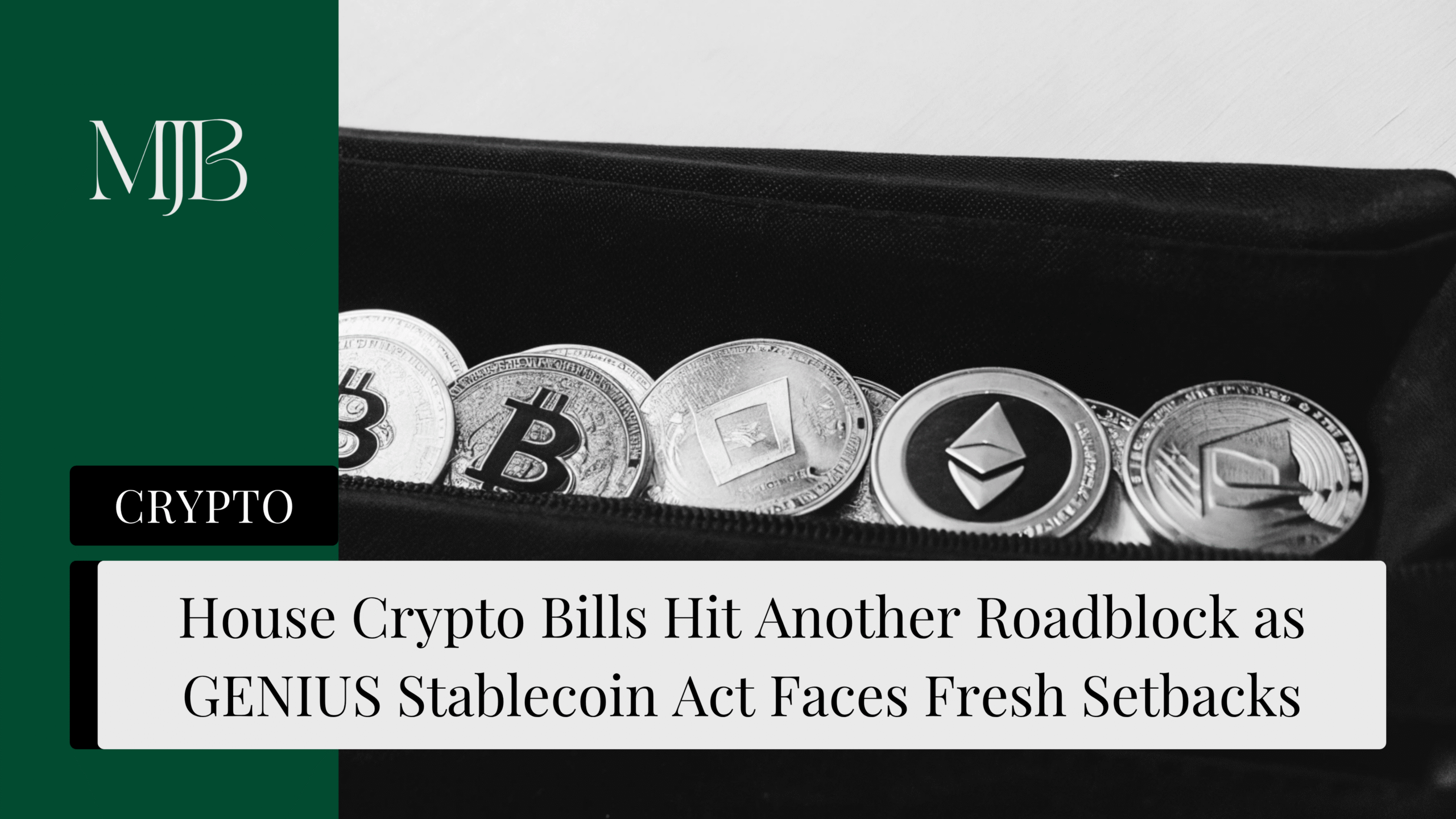Crypto Legislation Gets the Congressional Shuffle Treatment
Did you think crypto regulation was finally getting somewhere? Well, Wednesday’s House vote just served up another reminder that Congress moves slower than a Bitcoin transaction during peak hours.
The House initially advanced three major crypto bills with a razor-thin 215-211 vote, including the awkwardly named GENIUS (Guiding and Establishing National Innovation for U.S. Stablecoins) Act. But the kicker — the follow-up vote to actually adopt the resolution fell flat, putting these landmark bills back in legislative limbo.
Zero Democrats backed the effort, which tells you everything about how partisan this whole crypto conversation has become. So what does this mean for stablecoin regulation and the broader digital asset market?
What’s Actually in These Stablecoin Bills?
The GENIUS Act: Stablecoin Oversight
The GENIUS stablecoin bill isn’t just another acronym Washington cooked up. It creates the first real federal framework for stablecoin oversight, which is huge considering these digital dollars process billions in transactions daily.
Think of it as giving stablecoins the regulatory equivalent of a driver’s licence — proper rules, clear oversight, and actual consequences for bad behaviour.
Digital Asset Market Clarity Act: Drawing Lines in the Sand
This companion bill tackles the bigger question: who’s actually in charge of crypto regulation? Right now, the SEC and CFTC are basically playing regulatory hot potato with digital assets.
The Clarity Act would finally spell out which agency handles what, ending years of confusion that’s kept institutional money on the sidelines.
The Anti-CBDC Provision: Fed’s Digital Dollar Gets Blocked
Buried in the package is a measure preventing the Federal Reserve from issuing central bank digital currencies directly to consumers. Translation: no government-controlled digital wallets tracking your coffee purchases.
What Happens Next for Crypto Regulation?
The procedural vote failure means these bills need to navigate more congressional hurdles before reaching Trump’s desk. Given the partisan split and Democrats’ unified opposition, passage isn’t guaranteed.
But crypto advocates shouldn’t panic yet. The initial 215-211 vote shows there’s still majority support for comprehensive digital asset regulation. It’s just going to take longer than anyone hoped.
The real question is whether Congress can get its act together before the next crypto crisis forces their hand.
Why This Matters for Your Portfolio
Regulatory clarity isn’t just Washington bureaucracy — it’s what separates legitimate crypto markets from the Wild West. Clear stablecoin rules could unlock billions in institutional investment, whilst market structure clarity gives exchanges and trading platforms the roadmap they desperately need.
Plus, if you’re holding any stablecoins, federal oversight means better consumer protections and reduced counterparty risk. That’s not exactly exciting, but it beats losing your savings to the next FTX-style implosion.
Ready to stay ahead of crypto regulation changes? Keep following our finance coverage for the latest legislative updates that could impact your investments.
FAQ
Q1: When will the GENIUS stablecoin bill become law?
A: Nobody knows for sure, but it could still reach President Trump’s desk this week if Congress resolves the procedural issues. The initial vote showed majority support exists.
Q2: What does the Digital Asset Market Clarity Act actually do?
A: It divides regulatory authority between the SEC and CFTC, giving crypto companies clear rules instead of the current regulatory guessing game. Think of it as a referee finally showing up to the match.
Q3: Why did all Democrats vote against the crypto bills?
A: The vote fell along party lines, likely reflecting broader disagreements about digital asset regulation and government oversight. Partisan politics strikes again.
Q4: How would these bills affect stablecoin users?
A: Federal oversight means better consumer protections and clearer rules for stablecoin issuers. You’d get more security, but potentially stricter compliance requirements too.
Q5: What’s the deal with blocking CBDCs?
A: The anti-CBDC provision prevents the Federal Reserve from issuing digital dollars directly to consumers, maintaining the current banking system structure while blocking potential government surveillance concerns.
DISCLAIMER
Effective Date: 15th July 2025
The information provided on this website is for informational and educational purposes only and reflects the personal opinions of the author(s). It is not intended as financial, investment, tax, or legal advice.
We are not certified financial advisers. None of the content on this website constitutes a recommendation to buy, sell, or hold any financial product, asset, or service. You should not rely on any information provided here to make financial decisions.
We strongly recommend that you:
- Conduct your own research and due diligence
- Consult with a qualified financial adviser or professional before making any investment or financial decisions
While we strive to ensure that all information is accurate and up to date, we make no guarantees about the completeness, reliability, or suitability of any content on this site.
By using this website, you acknowledge and agree that we are not responsible for any financial loss, damage, or decisions made based on the content presented.






